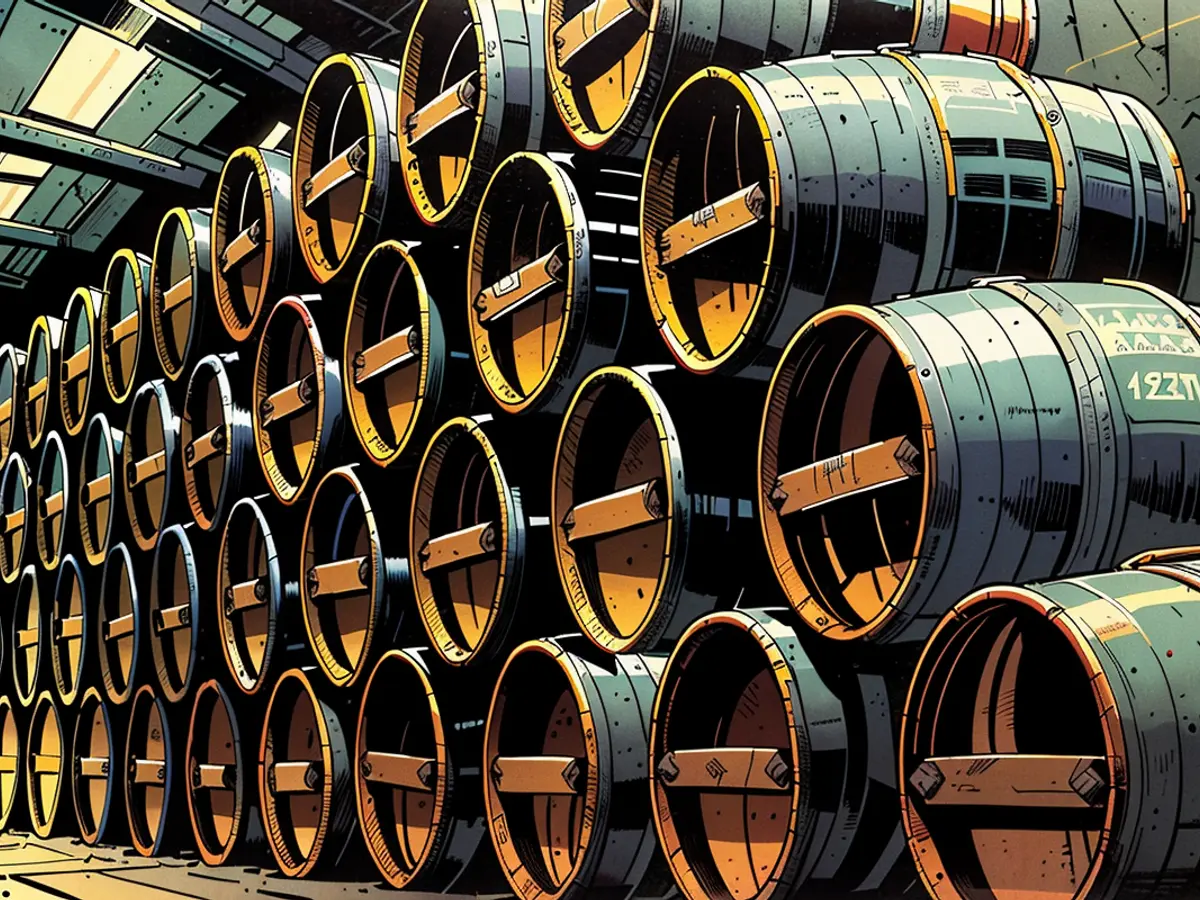Trade dispute - Reaction to car tariffs: China examines EU brandy imports
China tests Countermeasures in Trade Dispute with Brussels. In an ongoing Anti-Dumping investigation of Brandy from the European Union, China intends to listen to domestic firms, as the Ministry of Commerce announced. At a meeting on July 18th, possible damages to the Chinese industry will be discussed. Measures from Beijing could primarily affect producers from France.
Brandy Investigations have been ongoing
Beijing has been investigating imports of Brandy from the EU since January 5th. These investigations, along with those against Pork and Pork Products from the EU, are considered a response from Beijing to investigations in Brussels against Chinese Electric Vehicles.
In Anti-Dumping investigations, the allegation arises that the investigated products are offered for sale at artificially lower prices than usual on the respective market. Several Producers and Industrial Associations have requested a hearing. The Chinese Ministry of Commerce reportedly granted their requests to ensure fairness in the proceedings.
Vote on final Tariffs
As long as no final introduction of EU Tariffs is decided, they do not have to be paid but only security deposits. If negotiations with China are not satisfactory, the EU Commission could submit a proposal for the imposition of Tariffs. The EU States could only prevent this if a so-called qualified majority opposes it.
German Industry: Tariffs would have disadvantages for buyers
If Special Tariffs were actually introduced, the Vice President of the German Association of the Automotive Industry (ZDK), Thomas Peckruhn, expects disadvantages for the German market: "For consumers, the available electric vehicles would become significantly more expensive, especially since the competitive pressure for European manufacturers is decreasing."
The German government and German car manufacturers view Tariffs skeptically. They are concerned that retaliatory measures could primarily affect German car manufacturers, as China is a very important market for them.
Brussels and Beijing open for negotiations
In principle, China and the EU Commission are open to finding a solution in the next four months, until the measures are finally introduced. Vice Chancellor Robert Habeck (Greens) had negotiated in China about two weeks ago but did not achieve a breakthrough. Nevertheless, the EU Commission still sees a chance for a solution.
EU Commission confident: There are unfair Chinese subsidies
After an intricate investigation, the EU Commission came to the conclusion: there are unfair Chinese subsidies. The provisional tariffs of the EU authority amount to 17.4% for the manufacturer BYD, 19.9% for Geely, and 37.6% for SAIC. For other companies, 20.8% is planned, and for companies that did not cooperate in the investigation, a punitive tariff of 37.6% would apply. The tariffs add to an existing customs duty of ten percent.
Many markets are going stronger against China
The tariffs are partly significantly lower than, for example, those of the USA: other countries are going harder against imports from the Far East. China is indeed the largest automobile market in the world - but for Beijing itself, many markets have already become more expensive. The United States imposed tariffs of 100% on electric vehicles in May, effectively blocking the market for imports from China.
"The Americans have now closed their market, just like Brazil, Mexico, and Turkey," Commission President Ursula von der Leyen recently told the Redaktionsnetzwerk Deutschland. Therefore, Europe remains an attractive market for Chinese companies for the time being.
- The EU Commission is closely monitoring the trade dispute between Brussels and Beijing, as countermeasures from Beijing could potentially impact the automotive industry in Europe, particularly in countries like Germany and France.
- In response to investigations by the EU Commission into Chinese electric vehicles, Beijing has initiated Anti-Dumping investigations against Brandy imports from the EU.
- If the EU Commission decides to impose tariffs on Chinese imports, Germany and its car manufacturers are concerned about retaliatory measures from Beijing, which could significantly impact their operations in the Chinese market.
- In an effort to mitigate the impact of any potential tariffs, the German Association of the Automotive Industry (ZDK) has expressed concerns about the increased cost of electric vehicles for consumers and decreased competitive pressure for European manufacturers.
- Despite the ongoing trade dispute, both China and the EU Commission remain open to negotiations to find a resolution before any final measures are implemented.
- While many markets are taking a harder stance against Chinese imports, the EU remains an attractive market for Chinese companies due to its size and potential for growth in the automotive industry.







